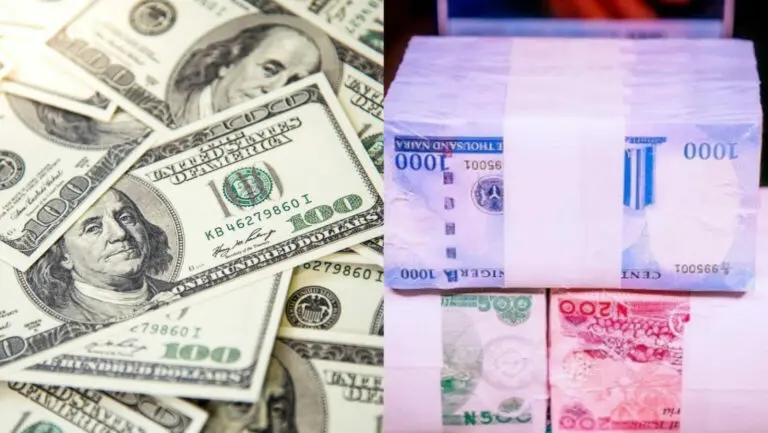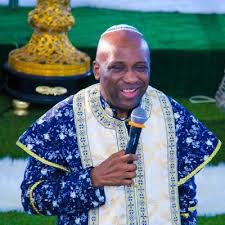News
FG Considers Converting $30 Billion Domiciliary Deposits To Naira

In a bold move to stabilize the Nigerian naira, the Federal Government is reportedly contemplating a policy that would see the conversion of foreign currencies in domiciliary accounts into naira.
This drastic measure comes in the wake of the naira’s unprecedented depreciation earlier this week, marking its worst performance in history by falling 24 per cent to close at N1,348 per dollar in the official Nigerian Foreign Exchange Market.
Top sources within the Presidency revealed that the proposed policy would involve ordering the conversion of idle foreign currencies in both individuals’ and corporate organizations’ domiciliary accounts into naira at a rate to be determined by the Central Bank of Nigeria (CBN).
The initiative aims to address the current forex scarcity and bolster the struggling national currency.
A Presidency source confided in Punch, emphasizing that the issue of forex scarcity and the naira’s depreciation is predominantly an “elite issue.”
The source further noted that the Federal Government is determined to take decisive action against those hoarding foreign currencies, which has been to the detriment of the naira’s value.
The source said, “The problem of dollar scarcity is an elite problem. You will notice that this happens at the end and the beginning of a new month. That is when the exchange rate goes up. Invariably, that is when governors collect FAAC (Federal Account Allocation Committee) allocations. Whatever the connection, we don’t know.
“There is no country in the world where people open domiciliary accounts to keep dollars. It happens only in Nigeria. This must be addressed. This is not only a political issue, but it is also an economic issue that must be addressed. Genuine demands driven by economic activities can’t bring this huge pressure. By June, dollar demands are supposed to have gone down when Dangote Refinery must have started.
“Nobody should keep a domiciliary account if they do not have legitimate foreign currency earnings like salary or getting foreign exchange revenue, either as an individual or as a company. Even if you have foreign exchange inflow as a result of your work, immediately after the money lands in your account, the banks should automatically change it to the local currency and your local currency account will be credited with the equivalent value.
“In Nigeria today, there are over $30bn in domiciliary accounts of individuals. It is in the CBN account. The records are there. It is not right. These are issues we will have to deal with. In other countries, dollars are not meant to stay in peoples’ accounts.”
If implemented, this will be a major policy shift by the President Bola Tinubu administration, which said in September 2023 that it was looking to attract funds held in domiciliary accounts and those held by Nigerians abroad into massive investments in various sectors of the economy.
The Minister of Finance and Coordinating Minister of the Economy, Wale Edun, had disclosed this at a press briefing in Abuja.
According to him, Nigerians have huge funds in domiciliary accounts and hold large sums abroad, which can be deployed to rejuvenate the economy, adding that his team was working to provide the needed environment to attract such funds into the local economy.
Edun said Nigerians in the Diaspora were also expected to play a significant role in the fresh move to take the economy to a position of high growth through productivity and efficient management of resources.
The minister had said, “What we can see is that really, there are quite substantial sources of foreign exchange in Nigeria.
“There is a lot of cash outside the system, which if brought into the system, increases the money supply of dollars, increases in reserves and so forth.
“There are funds in domiciliary accounts, which if you give people the incentives they will utilise for investment in Nigeria.
“Nigerians in Nigeria have huge holdings of foreign currencies in banks and financial institutions abroad.
“We need to provide the environment that brings those funds home to choose to invest in the Nigerian economy rather than foreign economies, which is what they are doing right now.
“If you place money in a bank abroad, you’re investing in a foreign economy. Finally, we also have a huge source of funds from the Diaspora.
“Nigerians living and working abroad, who of course, have their families here and who are interested in keeping a presence here; we have to encourage them to be willing to save in Nigeria, perhaps by improving payment mechanisms; so we have to do a lot to aim at them.
“There is plenty of hope and it is our determination to put in place the kind of structures and incentive framework that brings Nigeria money abroad and even Nigeria money outside the system into the financial and economic system to work, to create jobs for Nigerians.”
However, a branch manager of a Tier-1 bank in Lagos, who spoke on condition of anonymity because he was not authorised to speak on the matter said, “It’s too early to talk about compliance with the CBN directive by banks. Maybe we will have a clearer direction by next week when we should get the true picture. I don’t have information about my bank’s compliance at the moment; it’s our treasury people who will have the information, but at my branch today (Friday), customers came to deposit dollars into their domiciliary accounts unlike the situation before now.
“I personally think it will be tough for the government to put a lien on money in domiciliary accounts. At what rate will such funds be converted to naira? The exchange rate is gradually coming down as a result of the CBN directive.”


 Top Stories19 hours ago
Top Stories19 hours agoTinubu’s Aide Condemns Plan To Reinstall ‘Jesus Is Not God’ Banner In Lekki Mosque

 Top Stories14 hours ago
Top Stories14 hours agoBreaking: FIRS Announces Fresh Recruitment, See Eligibility Criteria, Application Deadline

 News20 hours ago
News20 hours agoPetrol To Sell ₦935/Litre From Today – IPMAN

 Top Stories17 hours ago
Top Stories17 hours agoPrimate Ayodele’s Prophecies For 2025

 Top Stories20 hours ago
Top Stories20 hours ago2025 Budget Cannot Address Nigeria’s Economic Challenges – Atiku

 Entertainment20 hours ago
Entertainment20 hours agoI will be more influential in Nigeria than UK – Tobi Adegboyega

 News20 hours ago
News20 hours agoPresident Tinubu’s reforms not responsible for food stampedes – FG








